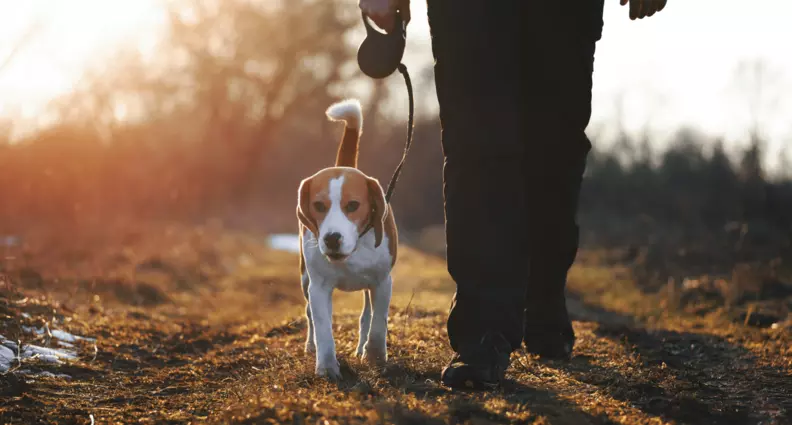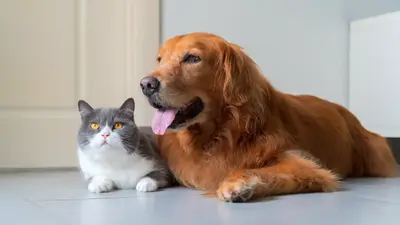Can Dogs See in the Dark?
- 16 Feb 2024
- 2m read

Dogs, like humans, have eyes designed for diurnal (daytime) vision. However, their eyes are also equipped with certain adaptations that make them well-suited for navigating in dim light.
While dogs cannot see in complete darkness as some animals can, their eyes can adapt to make the most of minimal light. One key feature contributing to their night vision is the tapetum lucidum, a reflective layer behind the retina. This layer acts like a mirror, reflecting light back through the retina and enhancing the amount of light available to the photoreceptor cells.
Dog vs Human Night Vision
Compared to humans, dogs have a higher concentration of rod cells in their retinas. Rod cells are photoreceptors responsible for low-light vision, allowing dogs to detect movement and shapes in dim conditions more effectively than us humans.
Factors Affecting Night Vision
While dogs have impressive night vision capabilities, several factors can influence their ability to see in low light:
Breed
Some breeds, such as Siberian Huskies and German Shepherds, are known to have better night vision than others due to genetic factors.
Age
Older dogs may experience a decline in night vision as their eyesight deteriorates with age.
Eye health
Conditions such as cataracts or progressive retinal atrophy can impair a dog's ability to see in any lighting condition, including the dark.
Environmental factors
Ambient light levels, such as moonlight or artificial lighting, can significantly impact a dog's ability to see in the dark.
Are Dogs Scared of the Dark?
Whether or not dogs are scared of the dark can vary depending on the individual dog.
Just like humans, dogs can have different levels of comfort with darkness. Some dogs may be perfectly fine in the dark, while others may feel uneasy or anxious.
Factors such as breed, upbringing, and past experiences can all play a role in how a dog perceives darkness. For example, dogs that have had negative experiences in low-light conditions or have not been properly socialised, may be more likely to feel scared or anxious in the dark.
Additionally, dogs have keen senses that allow them to perceive their surroundings even in low light, which can help alleviate fear. However, if a dog is particularly fearful of the dark, it's essential to provide them with a safe and comfortable environment, perhaps with dim lighting or a nightlight, to help ease their anxiety.




